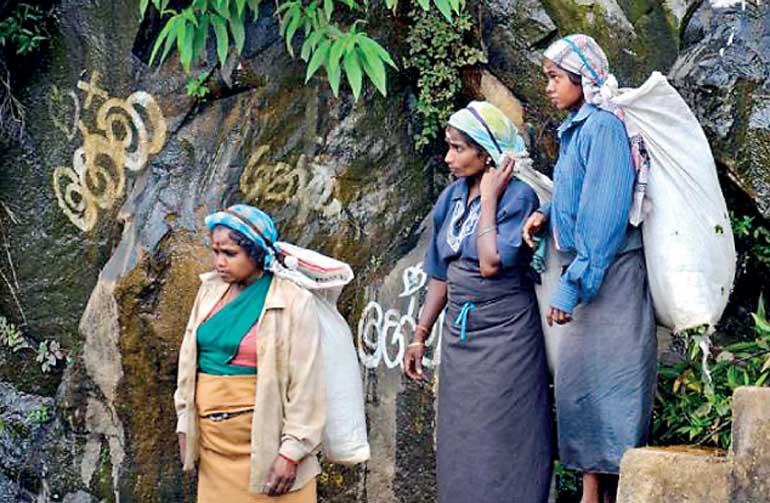Tuesday Feb 24, 2026
Tuesday Feb 24, 2026
Tuesday, 22 March 2016 01:10 - - {{hitsCtrl.values.hits}}
Hindu: Hill-country Tamils in Sri Lanka do not want to be called “Indian Tamils” anymore. This nomenclature of theirs has been “a source of political and administrative discrimination and social antipathy,” besides carrying “historical baggage.”
Making use of the ongoing process of constitutional reforms, the community wants the issue of identity to be resolved. It is particular that its identity should refer, wholly or partially, to a territory in Sri Lanka, even though certain sections of the community are not in favour of disowning their roots completely.
 Making use of the ongoing process of constitutional reforms, the Hill-country Tamils in Sri Lanka want the issue of identity to be resolved. File photo: Meera Srinivasan
Making use of the ongoing process of constitutional reforms, the Hill-country Tamils in Sri Lanka want the issue of identity to be resolved. File photo: Meera Srinivasan
Highlighting the issue of identity, a report prepared by experts on the initiative of the Tamil Progressive Alliance, a coalition of three parties representing the hill-country Tamils, has suggested that the community be called “Indian-Origin Malayaha Thamilar (IOMT).” The experts, who include P. Muthulingam, the head of the Kandy-based Institute for Social Development, also talk of creating a district by re-organising the existing district of Nuwera Eliya (Central Province) and linking it with other contiguously-located areas of other districts where IOMTs have higher concentration. [Throughout Sri Lanka, these Tamils constitute 4.1 %, a figure disputed in certain quarters].
The report also suggests the establishment of a non-territorial council for IOMTs, consisting of elected and nominated representatives of the community.
On the contentious issue of merger of the Northern and Eastern Provinces, the document is for retaining the present structure of nine Provinces, which means that it does not favour the merger. As for the adoption of federalism, another long-standing demand of Tamils in the North and the East, the document describes Sri Lanka as “a union of Provinces/regions”, while seeking maximum devolution.
Meanwhile, the Kandy Forum, a body of Muslim intellectuals, has also expressed its opposition to the merger of the two Provinces.
At the same time, it has also termed the demand for a non-contiguous separate Muslim territory in the East as “politically and pragmatically not suitable” to the needs of the community. Such a demand would only “further complicate the existing ethnic problem”.